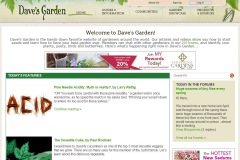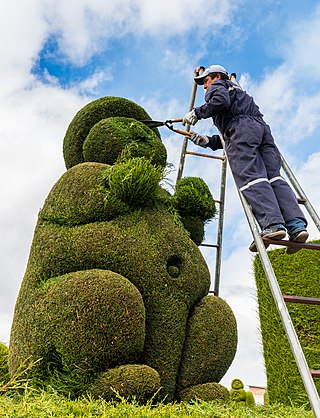
Gardening is the practice of growing and cultivating plants as part of horticulture. In gardens, ornamental plants are often grown for their flowers, foliage, or overall appearance; useful plants, such as root vegetables, leaf vegetables, fruits, and herbs, are grown for consumption, for use as dyes, or for medicinal or cosmetic use.

Raised-bed gardening is a form of gardening in which the soil is raised above ground level and usually enclosed in some way. Raised bed structures can be made of wood, rock, concrete or other materials, and can be of any size or shape. The soil is usually enriched with compost.

The Royal Horticultural Society (RHS), founded in 1804 as the Horticultural Society of London, is the UK's leading gardening charity.

Forest gardening is a low-maintenance, sustainable, plant-based food production and agroforestry system based on woodland ecosystems, incorporating fruit and nut trees, shrubs, herbs, vines and perennial vegetables which have yields directly useful to humans. Making use of companion planting, these can be intermixed to grow in a succession of layers to build a woodland habitat. Forest gardening is a prehistoric method of securing food in tropical areas. In the 1980s, Robert Hart coined the term "forest gardening" after adapting the principles and applying them to temperate climates.
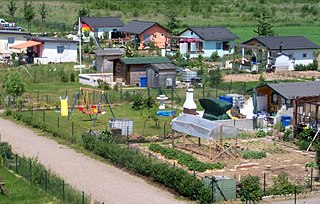
An allotment, or in North America, a community garden, is a plot of land made available for individual, non-commercial gardening or growing food plants, so forming a kitchen garden away from the residence of the user. Such plots are formed by subdividing a piece of land into a few or up to several hundred parcels that are assigned to individuals or families. Such parcels are cultivated individually, contrary to other community garden types where the entire area is tended collectively by a group of people. In countries that do not use the term "allotment (garden)", a "community garden" may refer to individual small garden plots as well as to a single, large piece of land gardened collectively by a group of people. The term "victory garden" is also still sometimes used, especially when a community garden dates back to the First or Second World War.
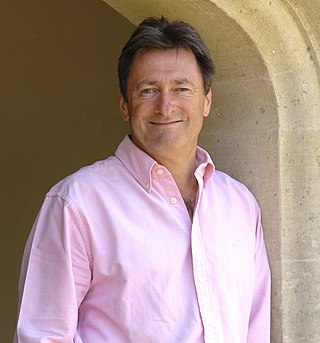
Alan Fred Titchmarsh HonFSE is an English gardener, broadcaster, TV presenter, poet, and novelist. After working as a professional gardener and a gardening journalist, he established himself as a media personality through appearances on television gardening programmes. He has developed a diverse writing and broadcasting career.

Gertrude Jekyll was a British horticulturist, garden designer, craftswoman, photographer, writer and artist. She created over 400 gardens in the United Kingdom, Europe and the United States, and wrote over 1000 articles for magazines such as Country Life and William Robinson's The Garden. Jekyll has been described as "a premier influence in garden design" by British and American gardening enthusiasts.
The Three Sisters is a variety of tomato, so named because the plant grows vegetables in three different shapes, each given plant producing only one of the three:

Graham Stuart Thomas, was an English horticulturist, who is likely best known for his work with garden roses, his restoration and stewardship of over 100 National Trust gardens and for writing 19 books on gardening, many of which remain classics today. However, as he states in the Preface to his outstanding book, The Rock Garden and its Plants: From Grotto to Alpine House, "My earliest enthusiasms in gardening were for....alpines." p8

Guerrilla gardening is the act of gardening – raising food, plants, or flowers – on land that the gardeners do not have the legal rights to cultivate, such as abandoned sites, areas that are not being cared for, or private property. It encompasses a diverse range of people and motivations, ranging from gardeners who spill over their legal boundaries to gardeners with a political purpose, who seek to provoke change by using guerrilla gardening as a form of protest or direct action. This practice has implications for land rights and land reform; aiming to promote re-consideration of land ownership in order to assign a new purpose or reclaim land that is perceived to be in neglect or misused. Some gardeners work at night, in relative secrecy, in an effort to make the area more useful or attractive, while others garden during the day for publicity.

A community garden is a piece of land gardened or cultivated by a group of people individually or collectively. Normally in community gardens, the land is divided into individual plots. Each individual gardener is responsible for their own plot and the yielding or the production of which belongs to the individual. In collective gardens the piece of land is not divided. A group of people cultivate it together and the harvest belongs to all participants. Around the world, community gardens exist in various forms, it can be located in the proximity of neighborhoods or on balconies and rooftops. Its size can vary greatly from one to another.
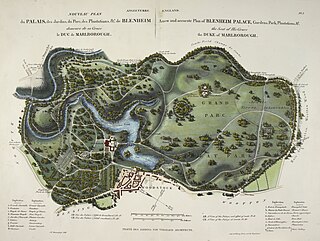
Historic garden conservation is a specialised type of historic preservation and conservation or restoration concerned with historical and landmark gardens and designed landscapes.

The Chicago Botanic Garden is a 385-acre (156 ha) living plant museum situated on nine islands in the Cook County Forest Preserves. It features 27 display gardens in four natural habitats: McDonald Woods, Dixon Prairie, Skokie River Corridor, and Lakes and Shores. The garden is open every day of the year. An admission fee has been approved to start in 2022, not to exceed $35.

Urban horticulture is the science and study of the growing plants in an urban environment. It focuses on the functional use of horticulture so as to maintain and improve the surrounding urban area. Urban horticulture has seen an increase in attention with the global trend of urbanization and works to study the harvest, aesthetic, architectural, recreational and psychological purposes and effects of plants in urban environments.
People, Places & Plants was an American gardening magazine based in New Gloucester, Maine, covering the areas of New England and New York. People, Places & Plants is also the name of a gardening television program syndicated by Home & Garden Television.

Community gardens in the United States benefit both gardeners and society at large. Community gardens provide fresh produce to gardeners and their friends and neighbors. They provide a place of connection to nature and to other people. In a wider sense, community gardens provide green space, a habitat for insects and animals, sites for gardening education, and beautification of the local area. Community gardens provide access to land to those who otherwise could not have a garden, such as apartment-dwellers, the elderly, and the homeless. Many gardens resemble European allotment gardens, with plots or boxes where individuals and families can grow vegetables and flowers, including a number which began as victory gardens during World War II. Other gardens are worked as community farms with no individual plots at all, similar to urban farms.
Gardener's Supply Company is an employee-owned company providing environmentally friendly gardening products and information through its website, catalogs, and retail stores.
The All-America Rose Selections (AARS) is an award that was given annually, from 1940 to 2013, by the American rose industry to an outstanding new rose variety. The AARS selection was regarded as the most prestigious rose prize in the United States for 73 years. AARS was discontinued after 2013, and was replaced in 2016 by the new American Garden Rose Selections (AGRS) program.
The Portland Gold Award is given annually by the Portland Rose Society to new rose cultivars that demonstrate exceptional performance in the Pacific Northwest of the United States. The first award was given in 1919 by the city of Portland, Oregon.
